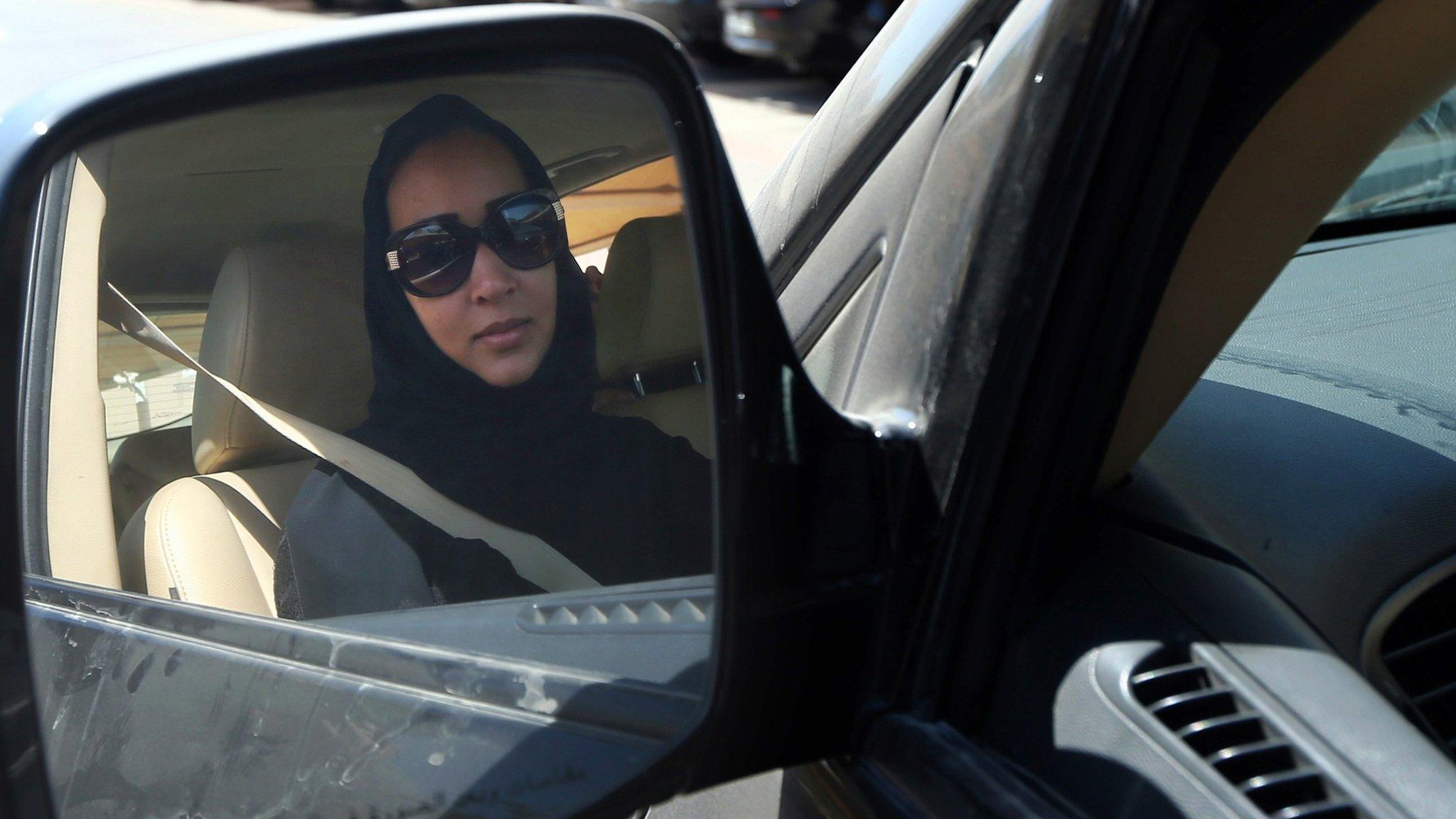Saudi Arabia's ban on women driving ended at midnight
- Published
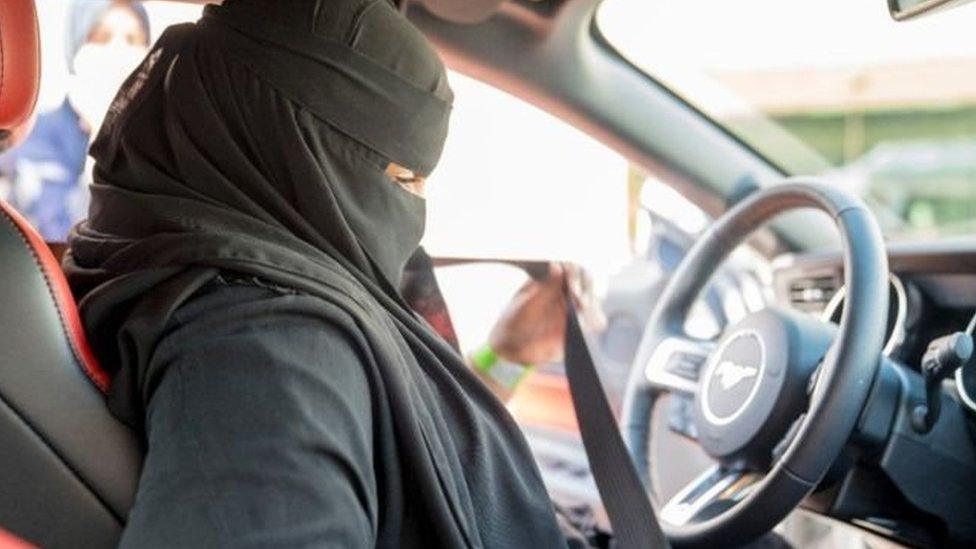
For more than 60 years many women in Saudi Arabia were stuck in the passenger seat - but now they can finally get behind the steering wheel.
Until now, only men were allowed driving licences, so while there was no formal ban on women driving, they couldn't drive legally either.
But now the rules have been changed, and Saudi Arabia has started issuing driving licences to women.
Earlier this month ten women received Saudi licences, all who had already been given a driving licence from another country.
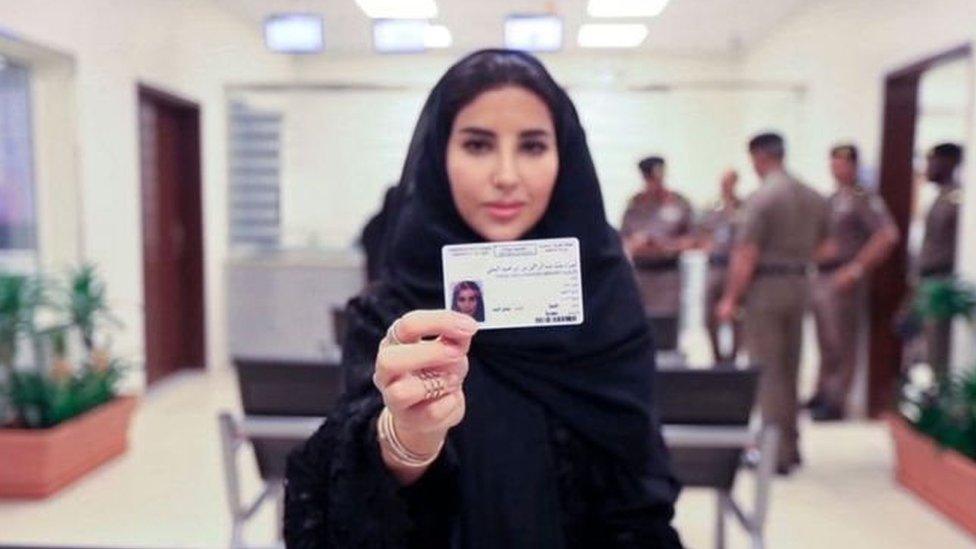
The Saudi Arabian government said it expected around 2,000 more women to get their driving licence in the first week.
Thousands of women have now signed up for driving lessons as new female-only programmes have sprung up.
The lifting of the driving ban was announced last September and is part of Crown Prince Mohammed bin Salman's programme to modernise some aspects of Saudi society.
In the past women who drove in public risked being arrested and fined. This often meant that families had to hire private drivers to transport female relatives.
Why were women not allowed to drive in Saudi Arabia?
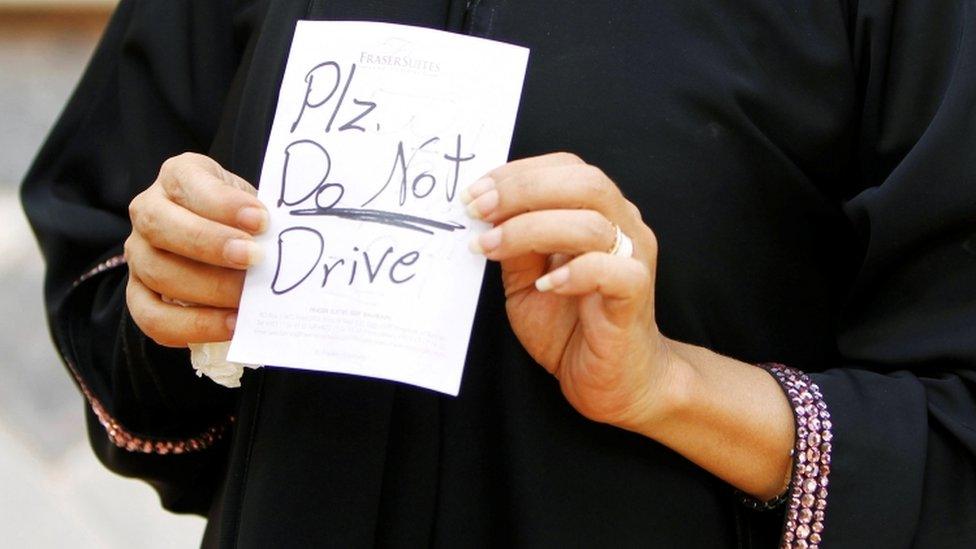
The Kingdom of Saudi Arabia follows a particularly strict brand of Islamic law known as 'Wahhabism'.
It says that men and women should be kept separate and what women should wear veils to cover themselves.
It's also the law in Saudi Arabia that every woman must have a male guardian. This is often a relative or the woman's husband.
Some people there said women didn't need to drive, because they don't travel without a man who can drive for her.
There are still others of other things women in Saudi Arabia can't do, compared to other parts of the world. You can find out lots more about the driving ban and Saudi Arabia here.
- Published13 January 2018
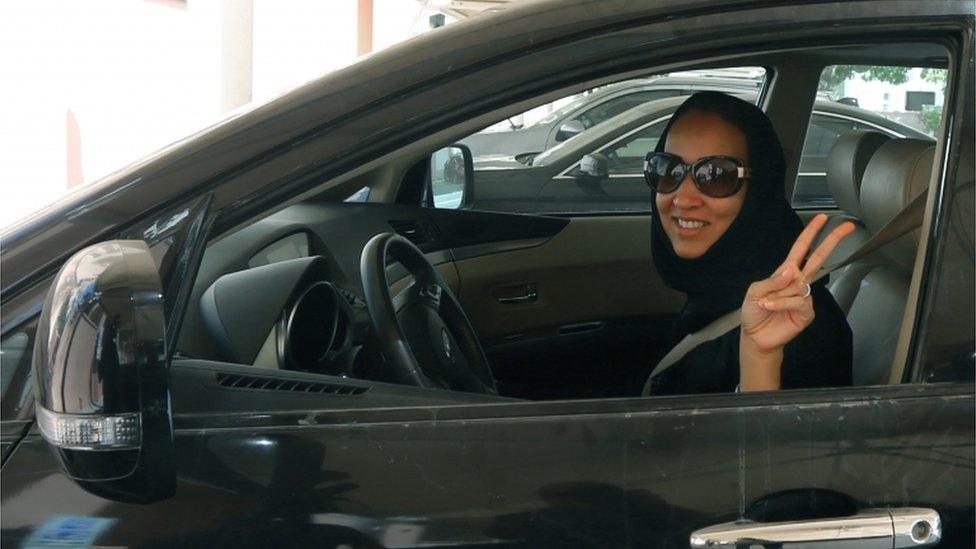
- Published12 December 2015
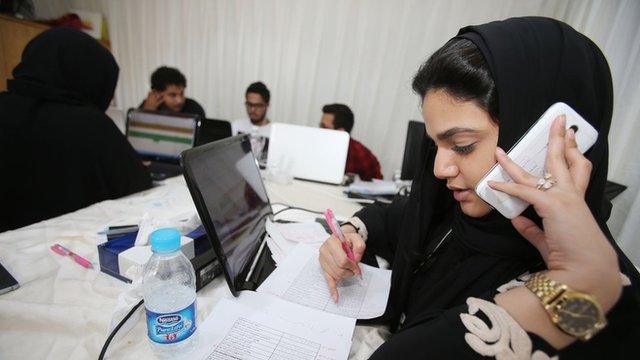
- Published26 October 2013
